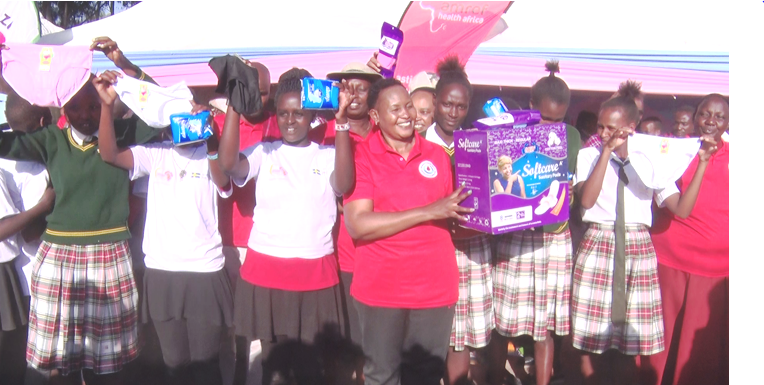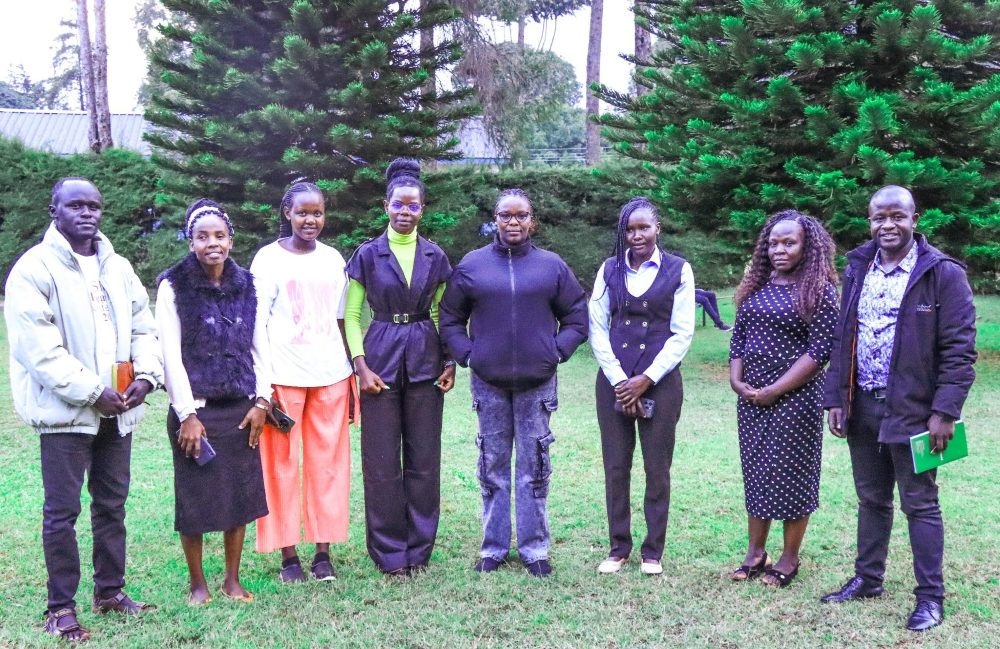Access to menstrual hygiene products remains a significant barrier for many girls in Narok’s remote areas.
Nearly 65 per cent of school-going girls in these regions miss classes each month due to a lack of sanitary products, perpetuating a cycle of stigma, absenteeism, and, in severe cases, school dropout.
“Menstruation should not be a reason a girl cannot achieve her dreams,” said Agness Ntutu, spouse of the Narok County Governor Patrick Ntutu, as she addressed hundreds gathered at Maji Moto in Narok South during this year’s World Menstrual Hygiene Day.
In her heartfelt address, Mrs. Ntutu called on parents, local leaders, government agencies, and development partners to make menstrual health a collective priority.
“Many girls miss class every month. That is 65 per cent in rural areas, missing classes due to a lack of sanitary pads. This has led to stigma, absenteeism, and in some cases, dropping out of school entirely,” she emphasised.
Her remarks struck a chord in a community where menstruation is still shrouded in shame and myths, and where discussions around it are often avoided entirely.
For girls from humble backgrounds, periods are not just a biological occurrence — they are a source of monthly anxiety.
“There are days I’ve had to stay at home because I didn’t have pads,” she says quietly. “Sometimes we use cloth or paper, but it’s uncomfortable and I’m always worried about leaking,” said the girls.
In many pastoralist communities, cultural taboos have created an environment where even mothers feel embarrassed to discuss menstruation with their daughters. As a result, girls are left unprepared, misinformed, and unsupported.
READ ALSO:
Middle-aged man jailed for 16 years for defiling school-age sister
MNtutu acknowledged the invaluable role NGOs have played in bridging this gap. “Your support has restored dignity, confidence, and hope to our young girls,” she said, applauding organisations that have distributed menstrual products and conducted awareness campaigns in hard-to-reach areas.
A good number of these Non-Governmental Organizations have been running menstrual hygiene workshops and providing reusable sanitary kits in schools across Narok.
Most of their programs are not just about pads — they are also about empowerment. They teach girls about their bodies, hygiene, and self-worth. They also talk to boys and male teachers to break down the stigma.
But the need remains urgent. A recent survey by a local NGO focusing on education indicated that menstrual-related absenteeism is one of the top five factors affecting girl-child education in Narok’s rural zones.
The lack of sanitation facilities in schools, long distances to reach shops, and high poverty levels all compound the challenge.
Mrs Ntutu urged the county and national governments to prioritise menstrual health as a policy issue. “We cannot talk about empowering the girl child without addressing this fundamental need. If we want our girls to excel, they need to be in school every day of the month.”
Ntutu’s call to action included a plea to parents: “Let us not wait for donors or NGOs. As parents, we must make sure our daughters are safe, confident, and supported through every stage of their lives.”
During the event, schoolgirls received menstrual kits donated by local partners, their shy smiles belying the quiet relief that came with knowing someone cared.
In a county often labelled as marginalised and remote, moments like these signal hope. The journey toward menstrual dignity in Narok may be long, but for girls from humble backgrounds, each day with dignity and confidence is a step closer to a brighter future.
By Kimutai Langat
You can also follow our social media pages on Twitter: Education News KE and Facebook: Education News Newspaper for timely updates.
>>> Click here to stay up-to-date with trending regional stories
>>> Click here to read more informed opinions on the country’s education landscape
>>> Click here to stay ahead with the latest national news.






